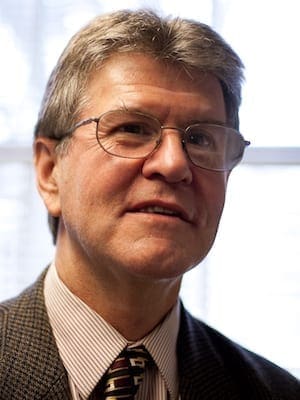I criticized in a recent column the idea that Christians should not cooperate with the criminal justice system to the point that churches refuse to call police.
That does not mean that churches should accept every aspect of contemporary ideas of crime and punishment, as they assuredly have so much that is useful and innovative to bring from their own distinctive traditions.
Historically, so much of our criminal justice system has been shaped by Christian views and attitudes.
Among other things, that means the growth of incarceration as an alternative to capital punishment, and the attendant idea that offenders could and should be reformed or rehabilitated.
Whatever our prison system has morphed into, it began as an expression of Christian ideals.
But long before that, Christian churches and congregations offered a serious and humane alternative to the formal criminal justice of particular eras.
“Justice” was notoriously brutal, to the point that a medieval litany reputedly included the prayer, “From justice, good Lord deliver us.”
The church tried to offer as many let-outs as it could, through devices like taking sanctuary.
As horrible as it seems today, one way the church tried to reduce the level of executions was to encourage the growth of physical punishments and mutilations.
More positively, clergy had the privilege of not suffering capital punishment or being penalized by secular courts.
In practice, that exception extended to everyone who could read (or memorize) a simple test passage.
Right through the 17th century, in England, whoever you were, an accused person read that text, “pled your clergy,” and got off with a petty penalty for a first offense. That was benefit of clergy.
And although women certainly could not be clergy, they were eligible for this privilege. Church policies helped lessen and humanize penalties that otherwise would have been appallingly severe.
Or imagine a medieval society where the regulation of violence depended on families enforcing justice and avenging their honor.
If a man was killed, the victim’s family undertook violence against the offender and his kin.
The state’s role largely consisted of persuading aggrieved families not to carry out the violence and to accept instead some monetary payment, the “man-price.”
Over the years, families accumulated many feuds and rivalries with other families or communities, so you really were at risk of ending up in a lethal fight with one of their members.
And that is where the church came in. In different times and places, the church advocated principles of what we would today call alternative means of dispute resolution – of reconciliation, community, mediation and arbitration.
Medieval England had a splendid custom called the Love-day, when the church and community would reconcile rivals without resorting to the common law, focusing instead on mediation, peace-making and arbitration.
Through the centuries, churches developed liturgies that allowed sworn enemies to enter into a kind of blood brotherhood, which prevented them (and their kinfolk) from killing each other. They did so by adapting a “brother-making” ritual of sworn friendship.
In 1994, a historian named John Boswell published a spectacularly wrong-headed book called “Same Sex Unions in Premodern Europe,” in which he claimed that these services were actually a form of same-sex marriage. To put it in the kindest way, Boswell went far astray in his interpretation.
To use a popular culture analogy, a medieval version of Don Corleone might have gone to church and stood before a priest promising to love, honor and cherish Don Barzini forever, while Don Barzini reciprocated, as they exchanged a kiss of peace.
That assuredly did not mean anything like marriage. Ideally, it might have resulted in fewer dead bodies littered around the countryside.
We see some of those older ideas playing out today.
When churches encourage people to reduce or minimize the use of the police and the formal justice system – to emphasize instead principles of reconciliation and mediation and arbitration – that is a throwback to what Christian clergy and congregations have done throughout history, especially in Late Antiquity and the Middle Ages.
For decades, too, urban clergy have been striving to build up the social fabric of communities and reduce gang violence.
When they do so, they are reviving the church’s long-standing role in minimizing feuds and vendettas and bringing rival factions together in peace, if not friendship.
So “divesting” from police, no. But churches do have a lot of valuable experience to share with modern societies.
Philip Jenkins is distinguished professor of history at Baylor University in Waco, Texas, and serves as co-director for the program on historical studies of religion in the Institute for Studies of Religion. He is the author of numerous books, including “The Great and Holy War: How WWI Became a Religious Crusade.” A version of this article first appeared on The Anxious Bench, where he blogs regularly, and is used with permission.
Philip Jenkins is distinguished professor of history at Baylor University in Waco, Texas, and serves as co-director for the program on historical studies of religion in the Institute for Studies of Religion. He is the author of numerous books, including “The Great and Holy War: How WWI Became a Religious Crusade.”

